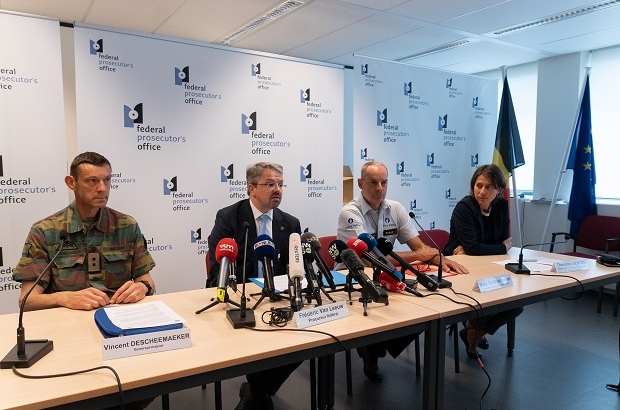- Daily & Weekly newsletters
- Buy & download The Bulletin
- Comment on our articles
Belgian women under arrest warrant repatriated from Syria with their children
A large group of Belgians nationals, including 16 children and six women, were brought back to the country from Syria this week following a repatriation operation coordinated by multiple federal agencies.
The families in question were living in a camp administered by the Kurdish regional authority in north-eastern Syria, near the Iraqi border, RTBF reports.
All of the women have warrants for their arrest in Belgium and most of them have already been convicted for participation in the activities of a terrorist group. Only a few have yet to stand trial.
Their husbands were fighting for terrorist organisations before being imprisoned by Kurdish forces, who then placed the men’s wives and children into camps that for years have been described as “inhumane” by human rights defenders, humanitarian officials and observers.
“For our national security, a controlled return is the best guarantee of adequate monitoring by all relevant services,” Belgium’s Coordination Unit for Threat Analysis (CUTA) said in a statement.
“The security situation in the camps is very fragile and escapes cannot be excluded. If an individual were to disappear from the security services' radar, the security risks would certainly be much greater in the long term. Thanks to this action, we have more control.”
Women to be imprisoned and monitored
Back in Belgium, the women will be incarcerated and closely monitored both during and after their stay in prison. CUTA has conducted an individual threat analysis for each of them that allows for a targeted approach as tailored as possible to each individual.
Their children are currently under the care of a medical team that will assess their physical and mental health. A juvenile judge will then decide which living arrangement is most appropriate for them on a case-by-case basis.
“The analyses by CUTA show that the repatriation of the mothers strengthens our national security, allowing for better monitoring and reinforcing control,” said Belgium’s prime minister Alexander De Croo.
CUTA echoed the sentiment, saying that “actions such as repatriating Belgian nationals reduce the risk of them becoming further radicalised. A stable and safe environment for children increases their chances of having a normal future in our society.”
Weeks-long and discrete operation brought to its conclusion
The repatriation process began in May when Belgium sent a mission to the camp to determine how many Belgian children were kept there, using DNA records.
Their mothers were then interviewed in order to assess their ties with Islamic State and their level of radicalisation. While some criticised the decision to allow the families of jihadists to return to Belgium, De Croo defended the action by saying that “children should not have to pay for the choices of their parents.”
“The priority of the National Security Council has always been to ensure the safety of children of Belgian nationality and to offer them a future in Belgium,” De Croo said after the mission was completed.
The mission involved weeks of preparation and was carried out with the utmost discretion by Belgium’s Foreign Affairs and Defence departments, in cooperation with intelligence services, police and the federal prosecutor's office.
The mothers and their children were repatriated in a military medical plane.
“Each child was given a carer who spoke their language and they were all given appropriate food, extra clothes and cuddly toys,” said Mar De Mesmaeker, the commissioner general of the federal police.
About 15 Belgian men are still in Syria, but are not affected by the repatriations. The women and children repatriated met certain conditions, including having family ties.
“All the children had to undergo a DNA analysis. The adults also had to renounce, obviously, the ideology they embraced when they went there,” explained federal prosecutor Frédéric Van Leeuw.
“The return also had to be voluntary. It is not a forced return because it is impossible to exercise or execute an arrest warrant in Syria.”
The arrest warrants were instead executed upon their arrival on Belgian soil.
Since the beginning of the conflict in Syria and Iraq, a total of around 140 Belgians have returned from the region.
Photo: (from left) Major General Vincent Descheemarker, federal prosecutor Frederic Van Leeuw, Commissioner general federal police Marc de Mesmaeker, Chair ad interim executive committee of FPS Foreign Affairs Theodora Gentzis (R) pictured during press conference © Noe Zimmer/Belga



















